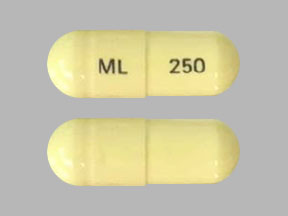Mefenamic acid Interactions
There are 421 drugs known to interact with mefenamic acid, along with 10 disease interactions, and 2 alcohol/food interactions. Of the total drug interactions, 100 are major, 306 are moderate, and 15 are minor.
- View all 421 medications that may interact with mefenamic acid
- View mefenamic acid alcohol/food interactions (2)
- View mefenamic acid disease interactions (10)
Most frequently checked interactions
View interaction reports for mefenamic acid and the medicines listed below.
- Advil (ibuprofen)
- Alcohol (contained in alcoholic beverages) (ethanol)
- Ativan (lorazepam)
- Augmentin (amoxicillin / clavulanate)
- Benadryl (diphenhydramine)
- Celebrex (celecoxib)
- Concerta (methylphenidate)
- Cymbalta (duloxetine)
- Fish Oil (omega-3 polyunsaturated fatty acids)
- Lexapro (escitalopram)
- Lyrica (pregabalin)
- Metoprolol Tartrate (metoprolol)
- Nexium (esomeprazole)
- Panadol (acetaminophen)
- Paracetamol (acetaminophen)
- Prozac (fluoxetine)
- Seroquel (quetiapine)
- Symbicort (budesonide / formoterol)
- Tylenol (acetaminophen)
- Ventolin (albuterol)
- Vitamin B Complex 100 (multivitamin)
- Vitamin B12 (cyanocobalamin)
- Vitamin B6 (pyridoxine)
- Vitamin C (ascorbic acid)
- Vitamin D3 (cholecalciferol)
- Vyvanse (lisdexamfetamine)
- Wellbutrin XL (bupropion)
- Zinc (zinc sulfate)
- Zoloft (sertraline)
- Zyrtec (cetirizine)
Mefenamic acid alcohol/food interactions
There are 2 alcohol/food interactions with mefenamic acid.
Mefenamic acid disease interactions
There are 10 disease interactions with mefenamic acid which include:
- asthma
- fluid retention
- GI toxicity
- rash
- renal toxicities
- thrombosis
- anemia
- hepatotoxicity
- hyperkalemia
- platelet aggregation inhibition
More about mefenamic acid
- mefenamic acid consumer information
- Compare alternatives
- Pricing & coupons
- Reviews (84)
- Drug images
- Latest FDA alerts (4)
- Side effects
- Dosage information
- During pregnancy
- Drug class: Nonsteroidal anti-inflammatory drugs
- Breastfeeding
- En español
Related treatment guides
Drug Interaction Classification
| Highly clinically significant. Avoid combinations; the risk of the interaction outweighs the benefit. | |
| Moderately clinically significant. Usually avoid combinations; use it only under special circumstances. | |
| Minimally clinically significant. Minimize risk; assess risk and consider an alternative drug, take steps to circumvent the interaction risk and/or institute a monitoring plan. | |
| No interaction information available. |
See also:
Further information
Always consult your healthcare provider to ensure the information displayed on this page applies to your personal circumstances.


